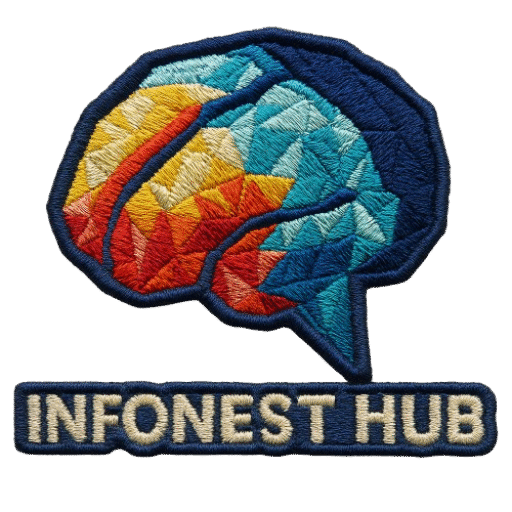Discover actionable career advice for 2025—practical tips, insights, Career Advice 2025: Practical Tips to Build a Successful & Future-Proof Career, and strategies to build a meaningful, future-proof career. FOR MORE CAREER ADVICE CLICK HERE
Career Advice: How to Build a Meaningful & Future-Proof Career Path
Introduction: Why Career Advice Matters More Than Ever
In today’s world of rapid change, finding the right career path feels less like climbing a ladder and more like navigating a maze. With AI reshaping industries, remote work becoming the norm, and skills evolving faster than ever, traditional advice like “pick a stable job and stick with it” feels outdated.
That’s where modern career advice comes in. It’s no longer just about landing a job—it’s about crafting a fulfilling, adaptable career that grows with you. Whether you’re a student choosing your first step, a professional thinking of switching fields, or someone seeking long-term growth, the right advice can mean the difference between burnout and balance, or stagnation and success.

The Changing Landscape of Work
Before diving into actionable strategies, let’s look at how careers are evolving today:
| Then (Old Mindset) | Now (Modern Mindset) |
|---|---|
| One company for life | Multiple careers & roles |
| Degrees matter most | Skills > Degrees |
| 9–5 fixed schedule | Flexible & remote work |
| Climb the corporate ladder | Build a personalized career path |
| Retirement at 60 | Lifelong learning & earning |
This shift means career advice has to evolve too—it’s not just about “where to work,” but also about how to stay adaptable and fulfilled.
Career Advice That Actually Works in 2025
1. Think Skills, Not Titles
The world doesn’t reward job titles—it rewards value. Instead of asking, “What job do I want?”, ask:
👉 “What problems can I solve, and what skills do I need for that?”
- Example: A “Marketing Manager” isn’t just about campaigns; it’s about skills in analytics, communication, and digital tools like SEO or AI-driven ads.
- Action Step: Make a list of 5 high-demand skills in your field. Websites like World Economic Forum and LinkedIn Learning publish updated lists every year.

2. Build a Career Portfolio, Not Just a Resume
A resume shows what you’ve done. A career portfolio shows what you can do.
- Why it matters: Employers now want proof of real-world ability. A GitHub repository, blog, LinkedIn posts, or design portfolio carries more weight than just words on a CV.
- Action Step: Document every project, even small ones. A student can showcase class projects. A freelancer can show client work. A teacher can share curriculum innovations.
3. Learn the Art of Networking (The Right Way)
Networking is not handing out business cards—it’s building genuine connections.
- Outdated Advice: “Just apply on job portals.”
- Better Advice: 80% of jobs are found through networking (LinkedIn report). Conversations > Applications.
- Pro Tip: Instead of asking, “Can you give me a job?”, ask, “What advice would you give someone entering your field?” This sparks mentorship, not rejection.
4. Don’t Just Chase Passion—Combine Passion with Market Demand
Passion alone isn’t enough. A career sweet spot lies where passion, skills, and demand intersect.
📊 The Career Sweet Spot Formula:
| Passion | Skills | Market Demand | Result |
|---|---|---|---|
| High | Low | Low | Hobby |
| Low | High | Low | Dead-end job |
| High | High | Low | Frustration |
| High | High | High | Successful career |
- Example: If you love photography but don’t want to struggle for clients, pair it with digital marketing or content creation to widen opportunities.

5. Future-Proof Your Career with Lifelong Learning
The half-life of skills is shrinking. According to IBM Research, technical skills become outdated in just 2.5 years.
- Action Step: Dedicate at least 5 hours a week to learning—courses, podcasts, or books. Even 20 minutes daily compounds over years.
- Pro Tip: Pick micro-certifications (Google, Coursera, LinkedIn) instead of relying only on traditional degrees.
6. Embrace Career Pivots
Switching careers used to be seen as risky. Today, it’s often necessary. Many professionals pivot multiple times: from teaching → corporate training, journalism → content marketing, or coding → product management.
- Personal Insight: I once met a mechanical engineer who pivoted into data science by learning Python on weekends. Today, he earns double and loves his work.
- Takeaway: Don’t be afraid of “starting over.” Every skill you’ve built has transferable value.
7. Prioritize Work-Life Balance Early
Career success means nothing if it comes at the cost of health or relationships. Burnout is now classified as an occupational phenomenon by the WHO.
- Advice: Learn to set boundaries, say no when necessary, and measure success not just in money, but in quality of life.
- Tool Tip: Apps like Notion or Trello can help balance tasks without overwhelming yourself.
Practical Career Advice for Different Stages
For Students & Fresh Graduates,
- Focus on internships & volunteering to gain practical exposure.
- Don’t chase your dream job immediately—chase learning opportunities.
For Mid-Career Professionals
- Reassess your career path every 5 years.
- Upskill to stay competitive, especially in tech-driven fields.
For Career Switchers
- Leverage transferable skills.
- Use online certifications to prove credibility in the new field.
Expert Insights: What Leaders Say About Career Growth
- Satya Nadella (Microsoft CEO): “Don’t be a know-it-all. Be a learn-it-all.”
- Sheryl Sandberg (Meta): “Careers are a jungle gym, not a ladder.”
- Reid Hoffman (LinkedIn Founder): “Your career is like a startup—invest, pivot, and scale.”
These insights highlight that adaptability, curiosity, and networking are more valuable than rigid planning.
Quick Career Advice Checklist
✅ Learn high-demand skills
✅ Build a portfolio (not just a CV)
✅ Network genuinely
✅ Balance passion with demand
✅ Keep learning every year
✅ Be open to pivots
✅ Protect work-life balance
Conclusion: Redefining Career Success
The best career advice isn’t about following a straight path—it’s about crafting your own journey, one that balances growth, fulfillment, and adaptability.
Success today isn’t about how high you climb on one ladder, but how many bridges you build along the way. Your career is a living, evolving project—treat it like one.
Call-to-Action
👉 What’s the best career advice you’ve ever received? Share your thoughts in the comments below!
👉 Want more insights like this? Subscribe to our newsletter for weekly tips on career growth, skills, and future opportunities.
Would you like me to also design a few infographic ideas (like the Career Sweet Spot formula or the Old vs. Modern Career Mindset table) that you can use inside the blog for better engagement?



